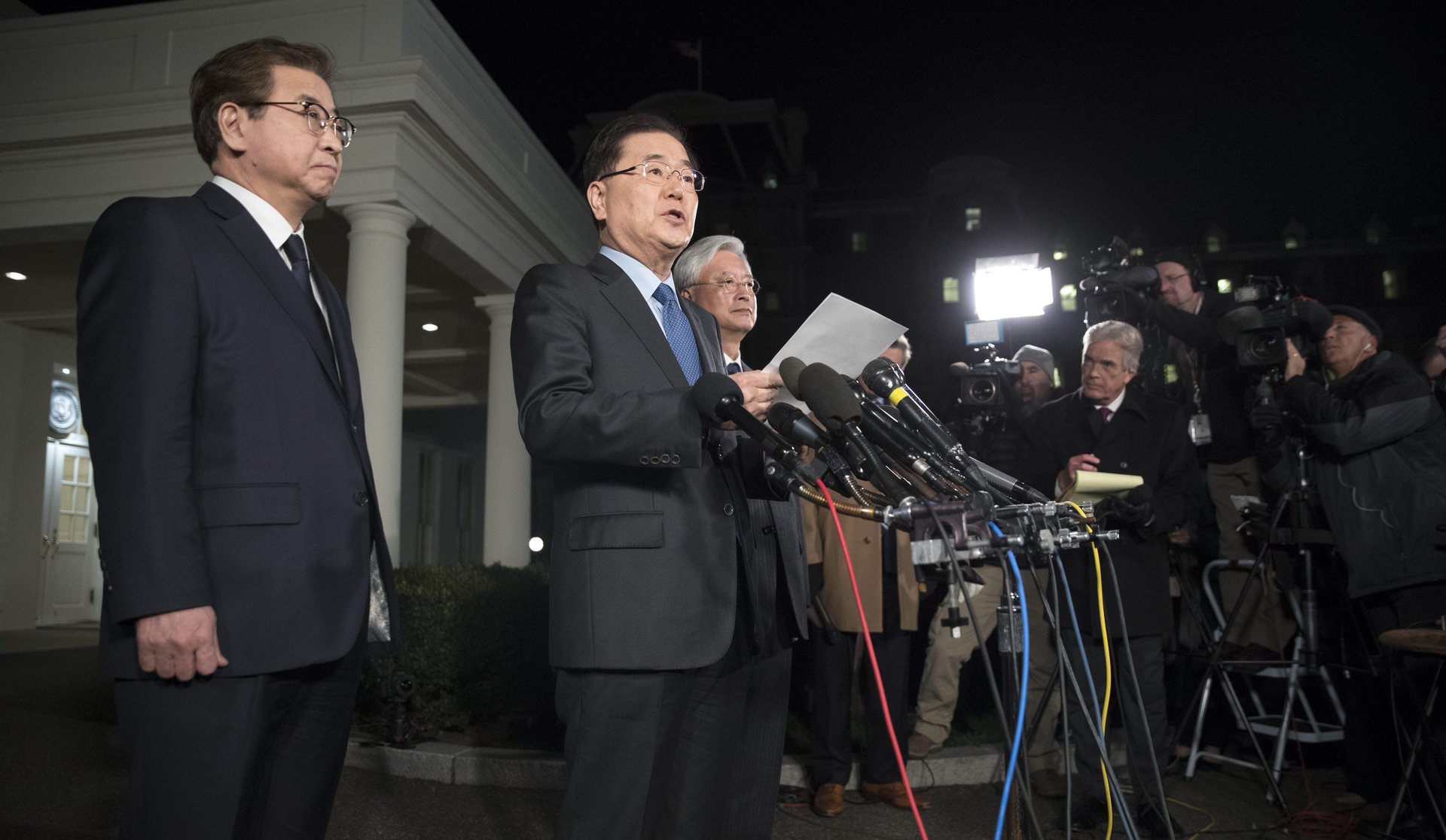South Korea’s president is bringing “Little Rocket Man” and “Dotard” to the table
Five months ago, Donald Trump wrote off the possibility of negotiations with North Korea, encapsulating his distaste for the prospect in one infamous tweet:


Five months ago, Donald Trump wrote off the possibility of negotiations with North Korea, encapsulating his distaste for the prospect in one infamous tweet:
North Korean leader Kim Jong-un later fired back with an insult of his own to Trump, labeling the US president a “dotard” and threatening to destroy America “with fire.”
Now, the two sides could potentially be sitting down to talk by May—a development that was announced on the White House lawn today (March 8) by South Korean national security advisor Chung Eui-yong following a meeting with Trump, and confirmed later by the White House. The South Korean delegation reportedly carried a verbal message from Kim that he was ready to talk about denuclearization and suspend missile tests in the meantime. Trump tweeted confirmation that a meeting was under consideration:
Trump has—despite his repeated threats of war and repugnance at the idea of engaging in diplomacy with the North Korean regime—tried to take credit for the swift diplomatic developments that have taken place on the Korean peninsula since the start of the year. In January, as signs of a thaw between Pyongyang and Seoul began to emerge, Trump suggested that the two sides would not be able to talk if he had not been “firm, strong and willing to commit our total ‘might’ against the North.”
But many Korea watchers are hailing South Korean president Moon Jae-in as the true brains behind the latest breakthrough. Vipin Narang, a nuclear proliferation expert at the Massachusetts Institute of Technology, said that Moon is the “winner of the week” and that the president had been “orchestrating this whole thing with very little from either the DPRK or the US,” referring to the official name of North Korea, the Democratic People’s Republic of Korea.
Kevin Gray, a specialist in inter-Korean relations at the University of Sussex in the UK, called Moon a “master of diplomacy” and said that the era of “Korea passing” is over, referring to a term that became widespread last year as many in South Korea feared that the Trump administration was freezing Seoul out of attempts to resolve the crisis on the Korea peninsula.
That’s not to say that each party involved in the process isn’t going to spin the latest breakthrough to its own advantage. For North Korea, it’s a way for Kim to prove to his people that his nuclear weapons and missiles programs have worked, by forcing the US to the table—though what exactly North Korea wants remains unclear. On the US side, the Trump administration is likely to continue parroting the line that its policy of keeping “maximum pressure” on Pyongyang, including harsh sanctions, has brought the regime to the point where it has no choice but to negotiate—though, as Victor Cha, Korea expert and former candidate for US ambassador to South Korea, noted, there’s no clarity on what the US is willing to put on the table as part of the discussions.
Indeed, even as Chung, the South Korean official, delivered the message on the White House lawn, he didn’t forget to flatter his host. ”His leadership and his maximum pressure policy together with international solidarity brought us to this juncture,” Chung said, adding that Moon also conveyed his “personal gratitude” for Trump’s leadership in the diplomacy process.